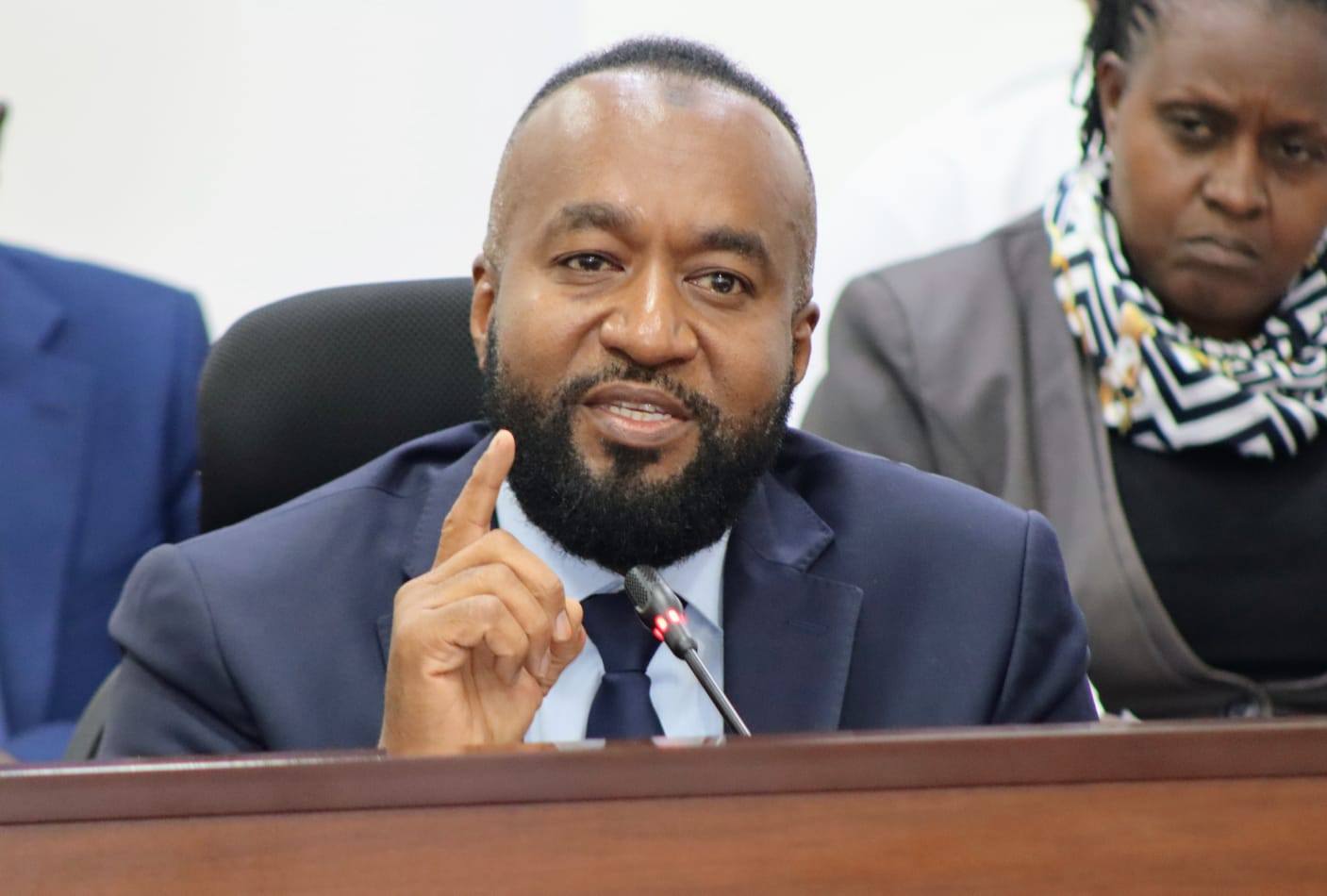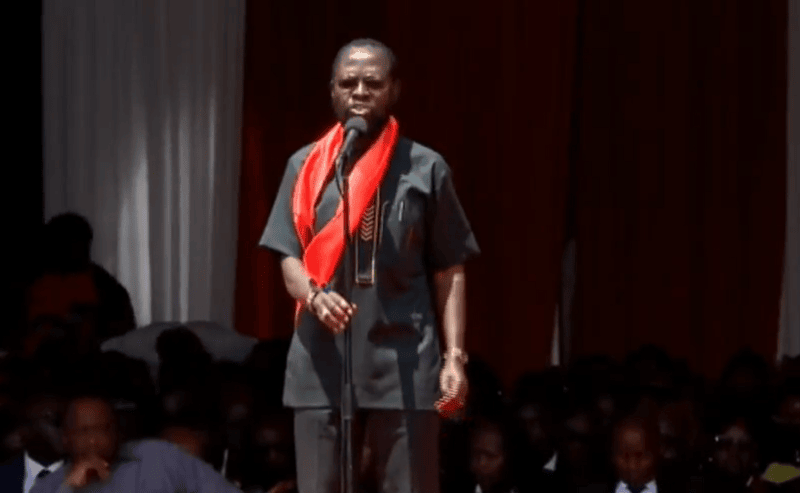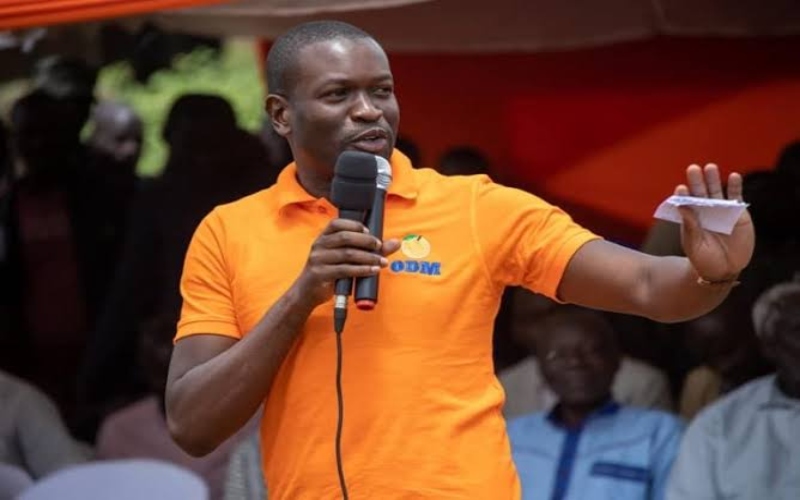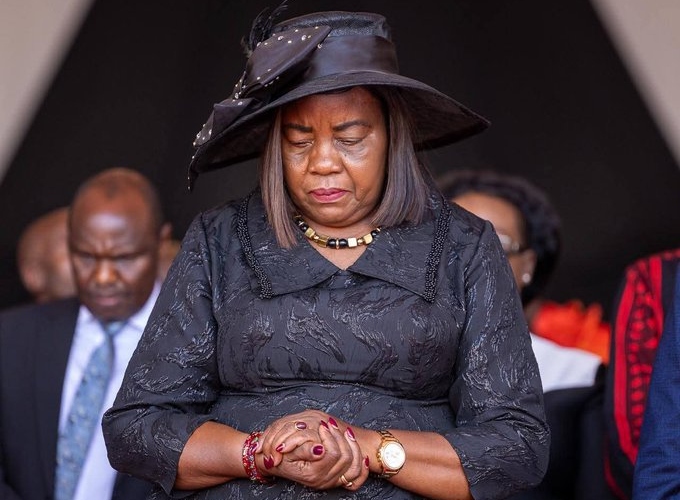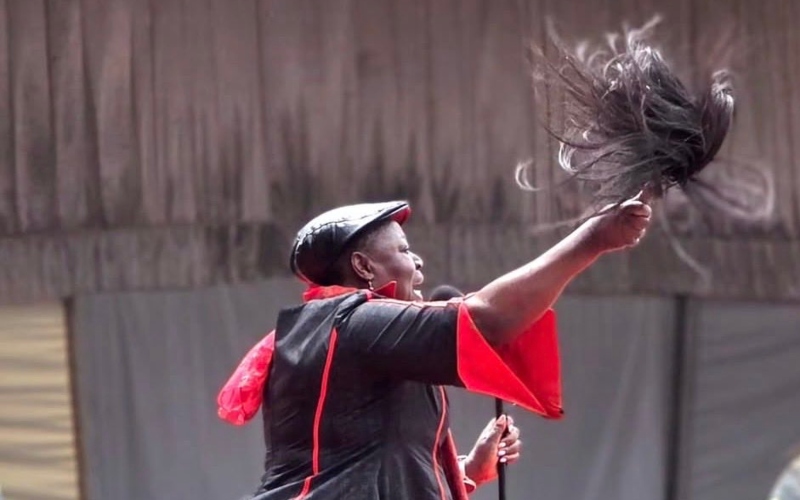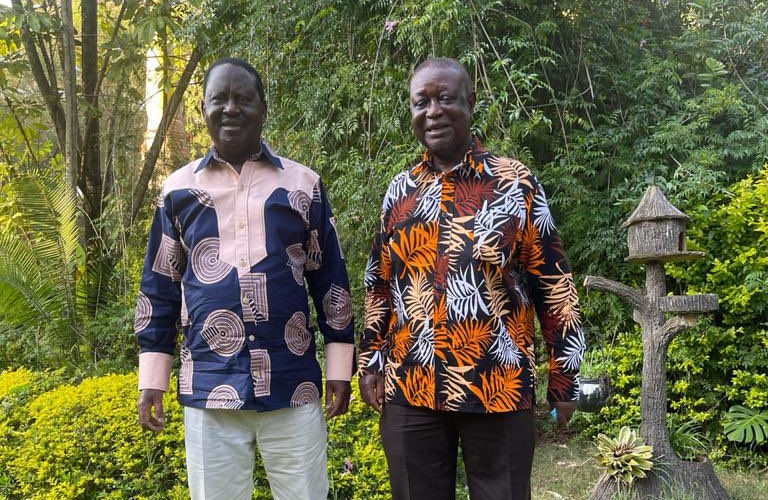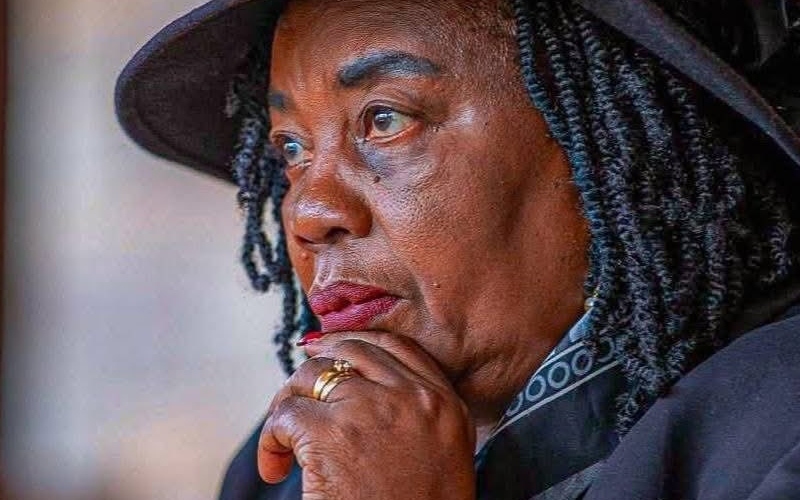Enslaved by addiction: Miraa, muguka's influence on Mombasa youth
Governor Abdulswamad Nassir has banned the entry, transportation, distribution, sale, and use of Muguka and its products within Mombasa County.
For over 10 years, Ramadhan Shee Mbwana has been consuming miraa (khat), a stimulant mainly grown in Meru and parts of Embu counties. He has also been chewing muguka, a variety of miraa.
Ramadhan's relationship with miraa began during one of the darkest periods of his life when he lost his mother while in Class Eight.
More To Read
- Government steps up push for miraa cooperatives to enhance oversight, security
- Murkomen orders crackdown on reckless miraa vehicles along Mwea–Embu highway
- Kenya secures Djibouti as new miraa export market in major boost for farmers
- Muslim women's group calls for urgent Muguka regulation after withdrawal of Bill
- MPs demand tough action on reckless miraa drivers
- Miraa farmers struggle to sell produce as traders reject new prices in Kagwe's directive
Suddenly thrust into the role of taking care of his siblings, the weight of his new responsibilities became overwhelming.
“My mother, who was our sole breadwinner, died. As a firstborn child, this left me with a huge responsibility. I had to look after my siblings. It was too much for me,” the 35-year-old recounts.
Amid this turmoil, his friends introduced him to miraa.
But what started as a means of coping with his immense grief and pressure soon became a regular habit. Miraa offered him a temporary escape from his harsh reality.
To him, miraa was neither addictive nor a drug, but he slowly started losing himself to it.
“I could earn Sh1,000, use Sh30 for food and the rest was spent on buying miraa,” says Ramadhan.
Spending most of his earnings on miraa, he found himself in denial.
"When told I had a problem, I would refuse to accept it. I was enslaved by the miraa consumption," he said.
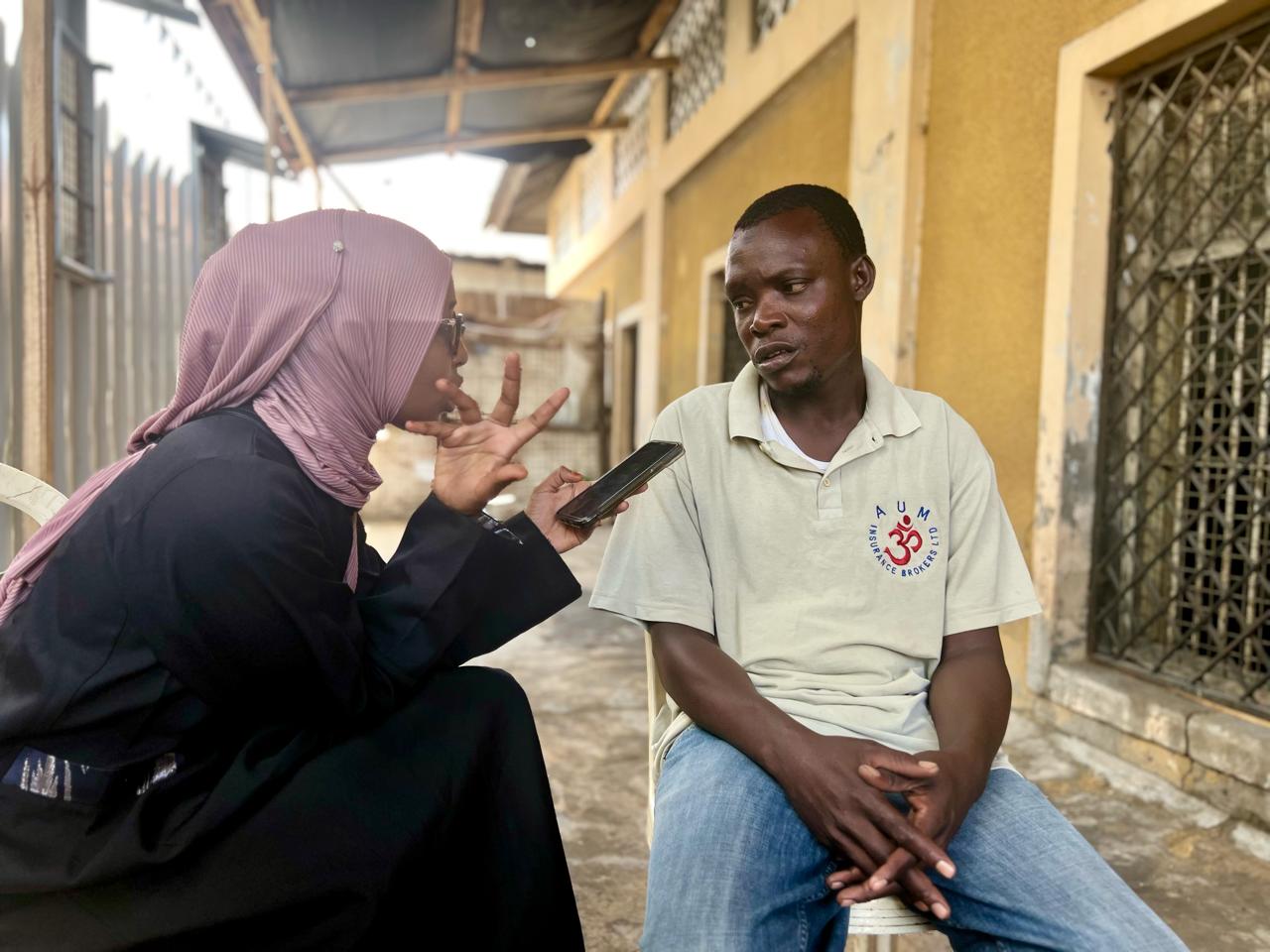 Ramadhan Shee Mbwana during an interview with The Eastleigh Voice. (Photo: Farhiya Hussein)
Ramadhan Shee Mbwana during an interview with The Eastleigh Voice. (Photo: Farhiya Hussein)
One day, he attended a session at Mewa Drug Treatment Centre in his Mlaleo neighbourhood in Kisauni, Mombasa County.
"During the session, I heard about the side effects of miraa and muguka. I had always believed they weren't addictive. To me, I was doing it for fun."
Even after this session, he went back to chewing miraa, but this time rethinking his actions. When he contracted tuberculosis early this year, it served as a wake-up call to him.
“I regret everything I went through. Due to my substance abuse, I got separated from my family. All my time was spent with friends chewing miraa. My younger brother also got into miraa addiction; he is battling with mental illness right now. I failed them as their elder brother,” says Ramadhan, noting that the addiction has degraded his dignity.
He is currently in his second month of treatment at the Mewa Health and Harm Reduction Centre.
His story is echoed by many in Mombasa.
Fifteen years ago, Monica Akoth, now a mother of four, first tried heroin. This marked the beginning of her journey through addiction, leading her eventually to miraa and muguka.
Her heroin addiction forced her into various rehabilitation centres on several occasions. Despite her efforts, quitting heroin was incredibly challenging.
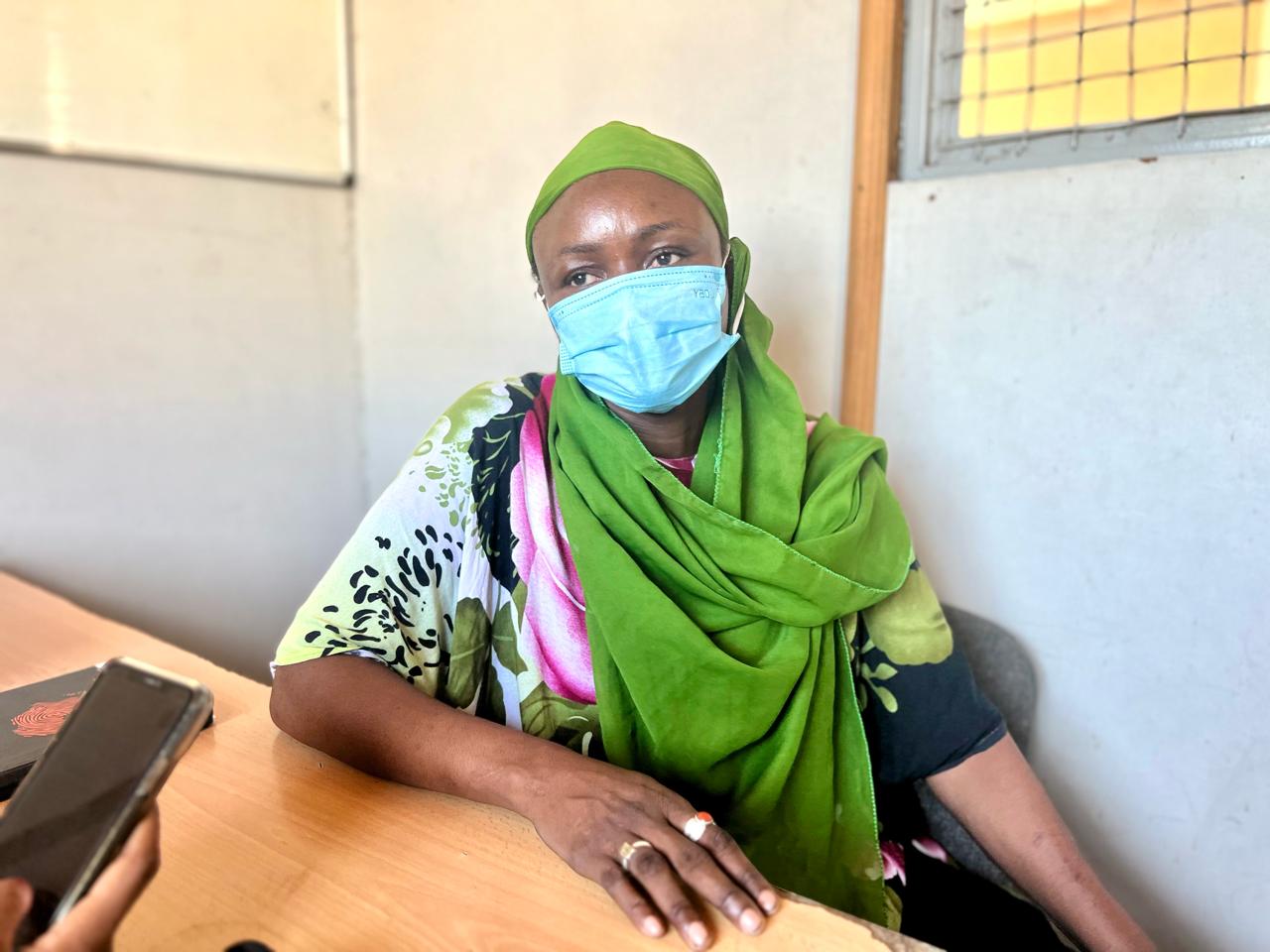 Monica Akoth during an interview with The Eastleigh Voice. (Photo: Farhiya Hussein)
Monica Akoth during an interview with The Eastleigh Voice. (Photo: Farhiya Hussein)
“When I finally managed to quit heroin in 2017, my colleagues introduced me to miraa,” says Akoth.
When she couldn’t afford miraa, she turned to muguka, the cheaper variant.
“A packet of muguka costs Sh50, while miraa costs between Sh300 and Sh500,” Akoth explains.
Initially, she believed muguka was harmless.
"Its consumption left me sleepless and wandering in clubs at night," she recalls.
She says the sleepless nights led to severe depression and mental illness, resulting in her going for rehabilitation several times.
“Muguka is cheap, but it's destroying families," she laments.
Her addiction did not only affect her health; it tore her family apart.
“I have four children, and my addiction led to the breakdown of my marriage. My husband left me because of my drug use. Thankfully, a good Samaritan sponsored my children to a boarding school,” says Akoth.
 Mombasa youths following up a discussion about muguka and miraa addiction amongst youths at the Swahili Pot Hub. (Farhiya Hussein)
Mombasa youths following up a discussion about muguka and miraa addiction amongst youths at the Swahili Pot Hub. (Farhiya Hussein)
The separation from her children added to her emotional burden, but she saw it as a necessary step to shield them from her chaotic life.
“I would ask for money from men and at times go to the shop owner asking for muguka on credit,” she says.
The financial strain was immense, and the constant need for money exacerbated her desperation.
Akoth strongly believes that banning muguka would alleviate many of the problems plaguing her community.
“Many people have found themselves in mental illness e because of muguka. It has destroyed families,” she says.
Akoth insists that addiction is not something one chooses willingly, but rather a complex struggle often influenced by peer pressure and bad company.
“Friends were the ones who recruited me. The bad company led me down this path,” she says.
Her story is a testament to the destructive power of addiction and the resilience required to fight it.
She notes that the effects of muguka and miraa are pervasive. With muguka being cheap and easily available, it is being used even by minors as young as 12 years old.
Mahfudh Fahmi, a paralegal at the Mewa Health and Harm Reduction Centre, says they are targeting people of all ages in their rehabilitation programme.
"Our programmes focus on abstinence and harm reduction, targeting youth aged 15 to 35," he explains.
Mahfudh says they have started situational assessments targeting over 1,000 people in Mombasa and Lamu counties.
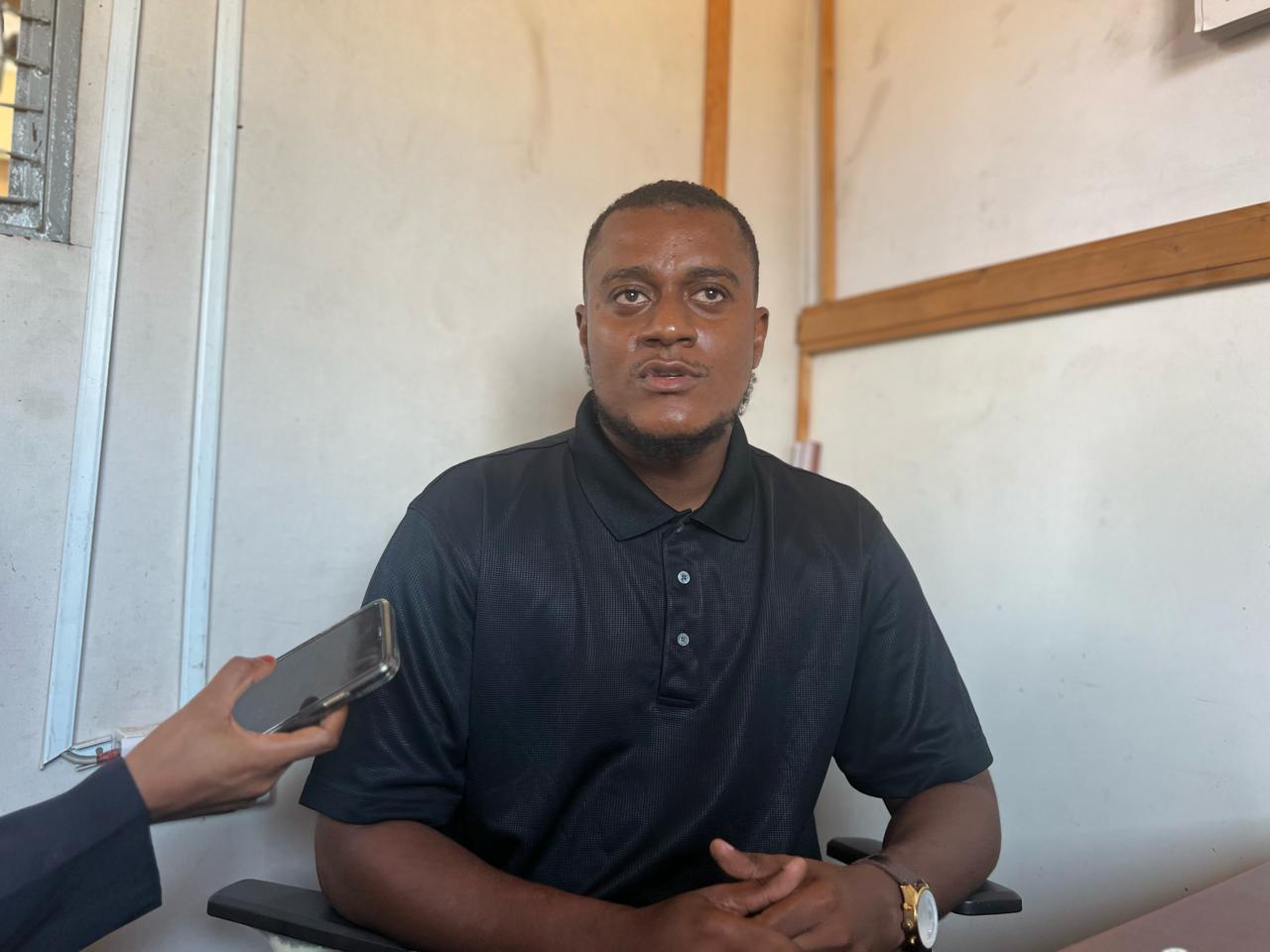 Mahfudh Fahmi, a paralegal at the Mewa Health and Harm Reduction Centre during an interview with The Eastleigh Voice. (Photo: Farhiya Hussein)
Mahfudh Fahmi, a paralegal at the Mewa Health and Harm Reduction Centre during an interview with The Eastleigh Voice. (Photo: Farhiya Hussein)
"We have surpassed our targets, reaching hundreds of individuals with our services. Yet, challenges remain, especially with funding."
He says despite their efforts, the battle is far from over.
"Muguka and miraa are destroying our youth. We need more collaboration to fight this epidemic," he says.
The situation is dire, but organisations like Mewa are offering hope. Through comprehensive treatment plans, support groups, and outreach workers, they aim to reclaim the lives lost to addiction.
According to a 2022 report by Nacada, the eastern region had the highest prevalence of use of miraa (9.6 per cent) followed by northeastern (7.2 per cent) and Nairobi (4.9 per cent).
The county government of Mombasa has enforced stringent measures to fight miraa and muguka addiction.
Governor Abdulswamad Nassir has banned the entry, transportation, distribution, sale, and use of Muguka and its products within Mombasa County.
The law, signed by Governor Abdulswamad Sharrif Nassir last Thursday, took immediate effect. He said the decision follows extensive public consultations and input from the National Authority for the Campaign Against Drug Abuse (NACADA).
Governor Abdulswamad emphasised that the new law aims to protect public health and address substance abuse issues within the county. "The health and well-being of our residents take precedence over any commercial interests," he said.
Top Stories Today
